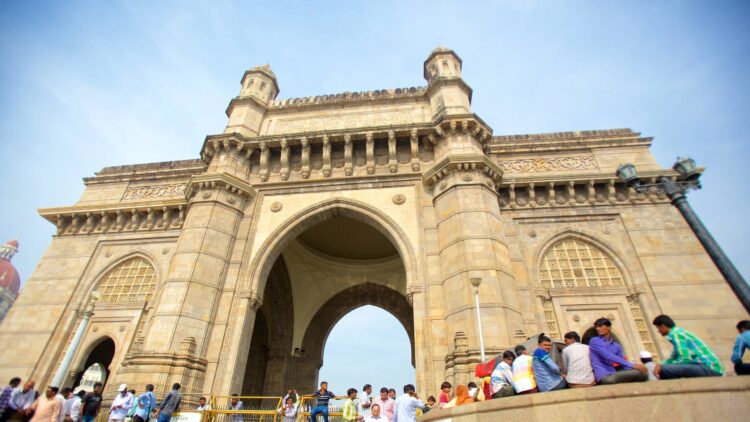CLIENT PROMOTION
From 1 October 2025, a law banning real-money gambling came into effect in India. The country now faces a crossroads of economic and social interests. The authorities justify this decision as necessary to protect citizens from gambling addiction, fraud and money laundering. However, the financial consequences of this approach could be significantly larger, ranging from lost investments in the sports industry to the growth of the shadow market.
Sports economy without partners: who loses most
India’s sports industry, especially cricket, has long been a magnet for private capital. However, the new law has effectively cut off access to investments from local and international gambling brands, which have traditionally sponsored clubs, leagues and athletes.
Before the ban, India hosted around 400 real-money gaming (RMG) companies, generating nearly US$2.3 billion in taxes each year and supporting over 200,000 jobs. One of them, Dream11, India’s largest fantasy sports platform, became the main sponsor of the national cricket team for three years in July 2023, with its logo even appearing on the team’s jerseys. But now, that is history. Another company, My11Circle, valued at US$2.5 billion, was a partner of the Indian Premier League. Both companies have stopped operating.
At the global level, several international betting brands invest in sports development through both sponsorship deals and social programs. Among them is 1xBet, best known for its partnerships with football and cricket clubs, as well as its support for Indian para-athletes and charitable initiatives promoting inclusion in sports.
Under current conditions, betting companies are unable to collaborate with Indian clubs or sports organizations. As a result, Indian sport misses out on significant investments that could support infrastructure, youth programs and athlete development. A clear example is 1xBet, which actively supports cricket outside India, including the Durban Super Giants and the European Cricket Network, investing in the promotion of the game and the cricket ecosystem development.
Tax losses and regulated market potential
According to the analysis by SCCG Management (Cricket, Cards and Cash: How India’s Digital Betting Market Is Shaping Global Gaming), legalized betting could bring billions of dollars to the government each year, creating not only a tax base but also thousands of jobs. Researchers at IJFMR estimate that full legalization could add 0.4–0.6% to India’s GDP in the first three years of a regulated sector.
In contrast, current tax policies and unclear regulations discourage investors. The 28% GST on player deposits is quite high, while most jurisdictions worldwide tax only gross gaming revenue.
These conditions push businesses underground and lead users to play through offshore sites. As a result, the government loses not only tax revenue but also control over financial flows.
It would be more economically beneficial to adopt a “controlled legalization” model with moderate tax rates and auditing. Following examples from the UK or the Philippines, such a system could balance government interests with the market’s commercial appeal.
Responsible gambling and the role of government institutions
India’s main problem is the lack of government institutions that could both control the market and support social programs. Regulation is not just about taxes; it should include addiction prevention, support for gamblers and educational initiatives.
In developed jurisdictions, special agencies (for example, the UK Gambling Commission) not only issue licenses but also fund support programs, research and training initiatives for operators.
India lacks such structures. Setting up a dedicated commission could be the first step towards proper regulation. Its functions could include issuing licenses, auditing algorithms, monitoring transactions, detecting suspicious activity and funding psychological support centers.
Ban as risk: economic impact and market consequences
A complete ban on real-money games threatens a multi-billion-dollar industry. Even now, platforms are challenging the law in courts, and major investors are “freezing” deals, fearing capital losses due to legal uncertainty.
The ban does not eliminate gambling – it just moves it offshore. Players continue to use international sites outside Indian jurisdiction, do not pay taxes, and, most importantly, do not follow safety standards. As Yahoo Finance notes, this could lead to a “brain drain,” with top game development specialists and analysts moving to more liberal jurisdictions.
In the long term, economic losses could be significant: instead of developing the tech sector, India risks the growth of an illegal market that creates no jobs, pays no taxes, and is beyond government control.
Conclusion
A complete ban on betting in India is an attempt to solve a social problem through administrative measures, but from an economic perspective, it is a strategic mistake. By losing investments in sport, technology and startups, the government misses the chance to create a controlled, transparent and socially responsible market.
Regulation, not ban – the path followed by mature economies.
If India established a legal licensing system for operators and a regulated gambling market, investments from global companies such as 1xBet could flow directly into the country’s economy – into sports infrastructure, educational projects, training centers, and programs for gambling addiction prevention. The government would gain tax revenue, strengthen its position in the global digital economy, and cricket would remain not just a game but a tool for development.



































